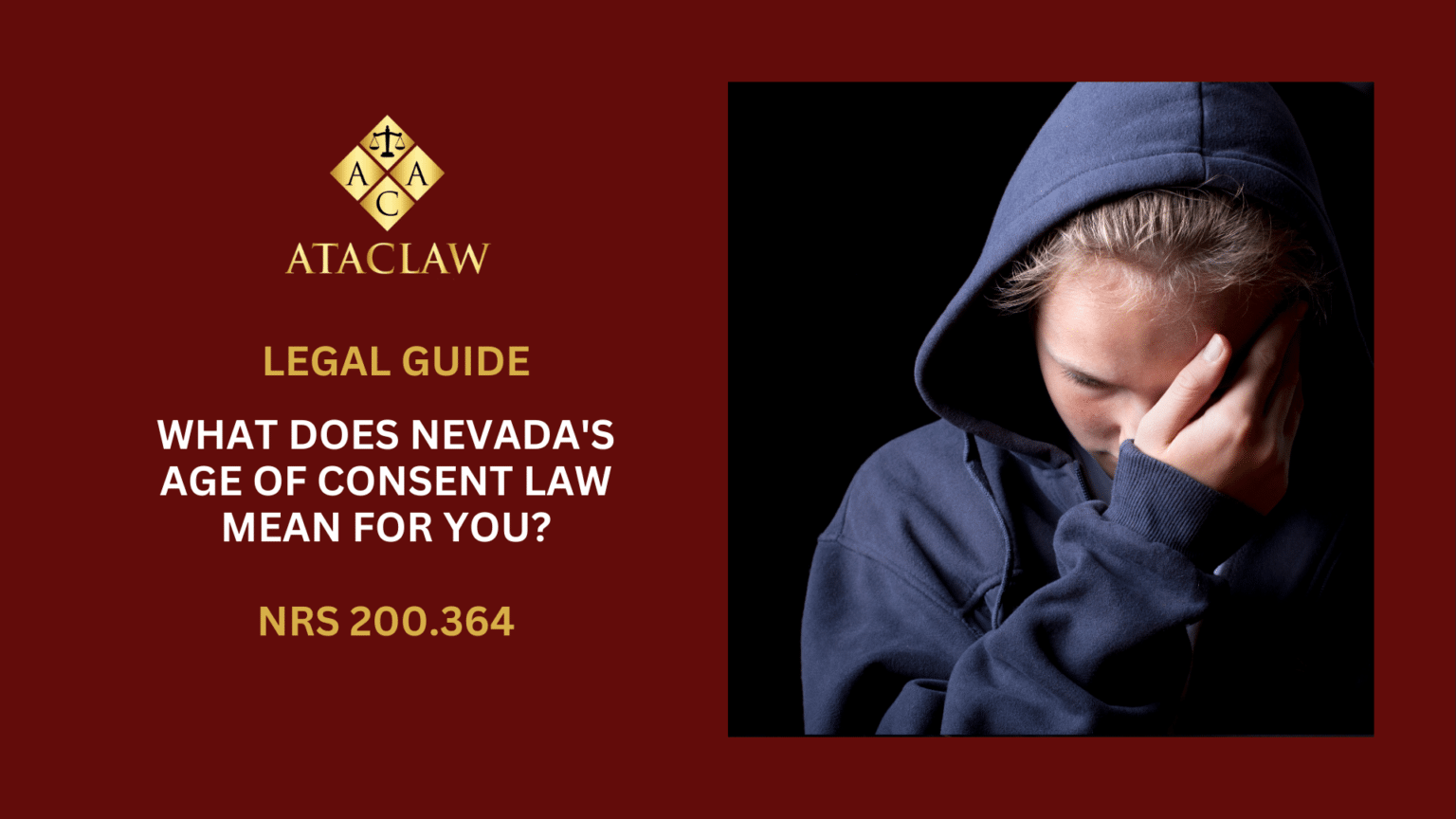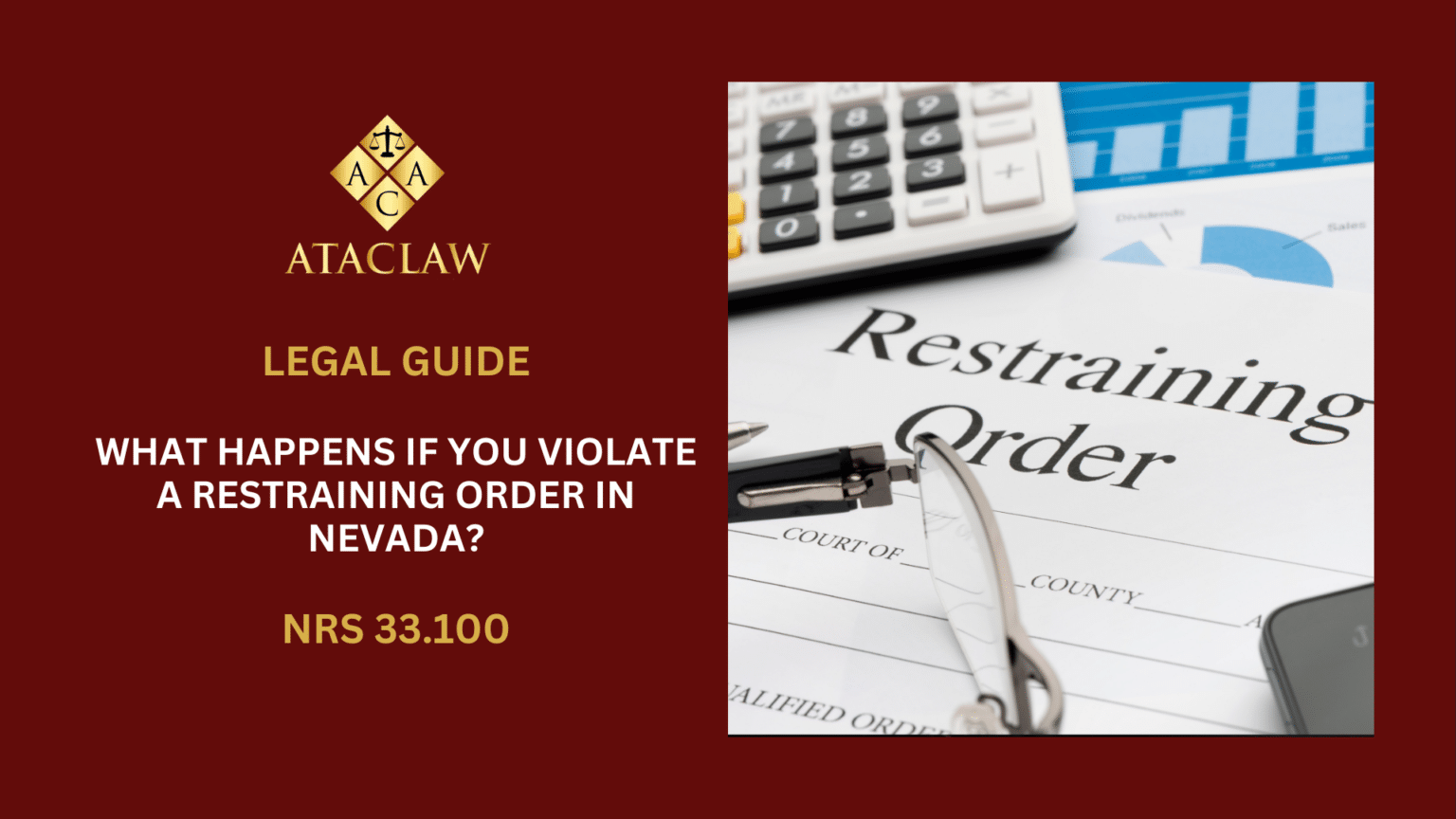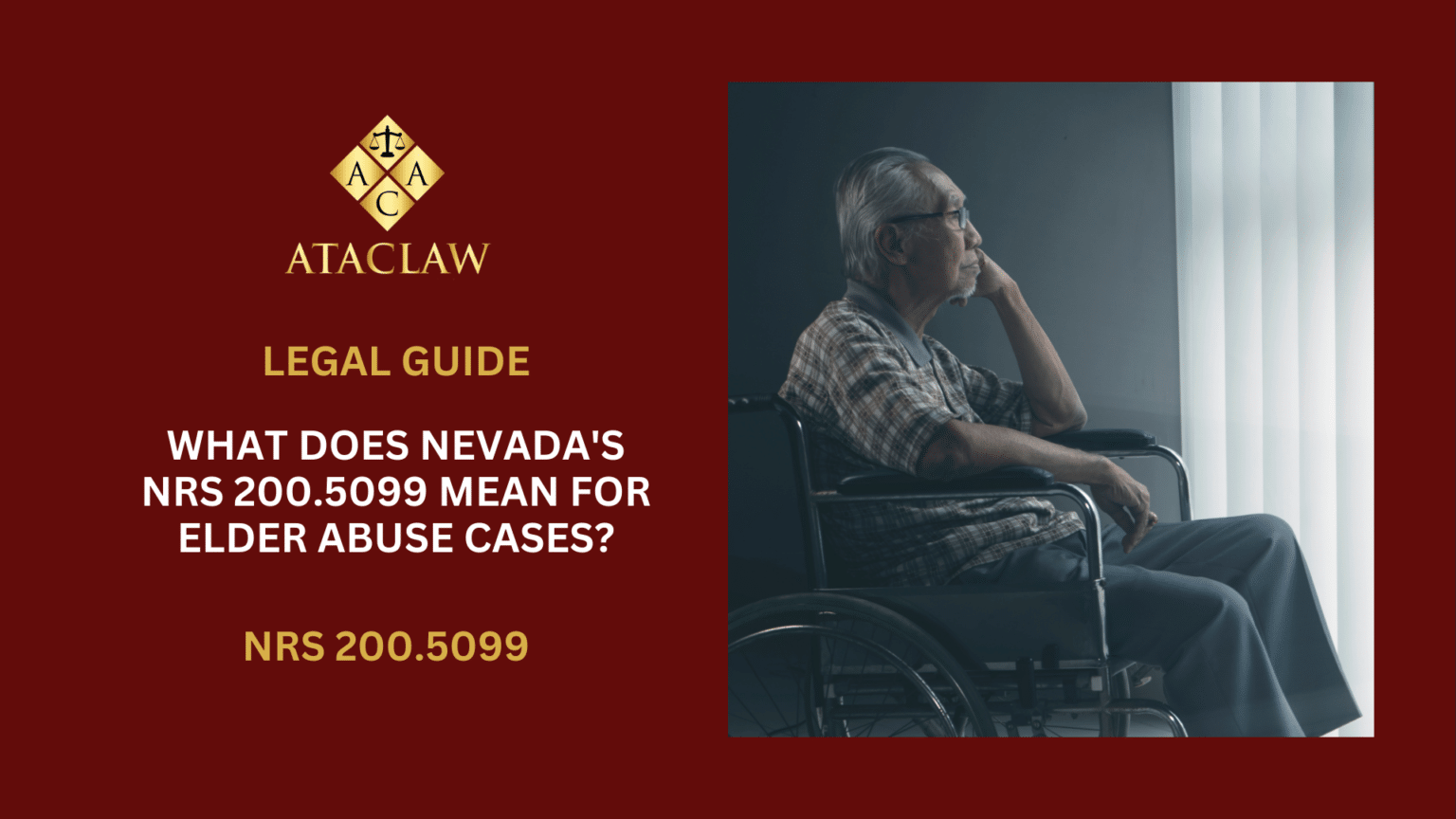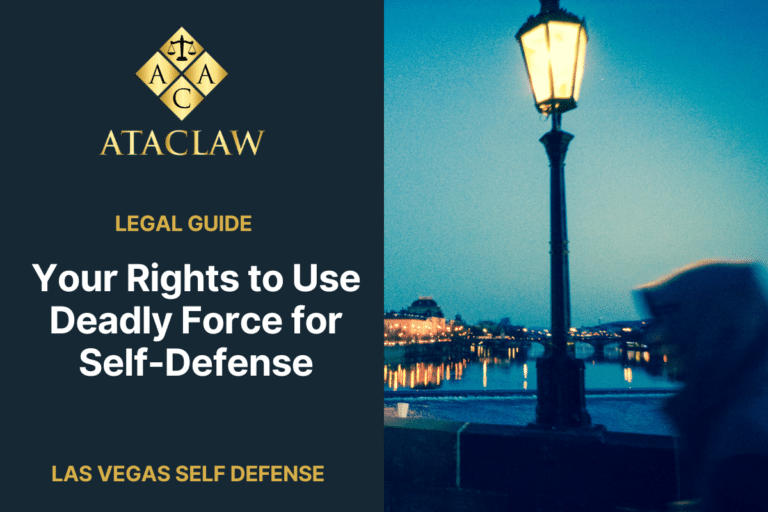Understanding the complexities of age of consent laws in Nevada can be challenging, but understanding these regulations is crucial for both teenagers and adults. At ATAC LAW, we’re here to shed light on Nevada’s legal stance on this sensitive issue, ensuring you’re well-informed about your rights and the potential legal consequences of your actions.
What is the Legal Age for Consensual Sex in Nevada?
In the state of Nevada, the legal age of consent is firmly set at 16 years old. This law implies that individuals under the age of 16 are considered legally incapable of consenting to sexual activities. Nevada’s legislation reflects a commitment to protect minors, acknowledging their inability to make informed decisions that come with serious consequences, such as the risk of pregnancy and sexually transmitted infections.
- Fixed Age of Consent: Nevada firmly sets the age barrier for consensual sexual activities at 16 years old. This rule is applied uniformly across different situations, evidencing the state’s commitment to protect the well-being of minors.
- Underage Consent Not Valid: Regardless of the surrounding circumstances, such as the minor’s maturity level or their actions that might suggest consent, individuals under 16 are legally unable to agree to sexual activity in the eyes of Nevada law.
- Appearance and Assertions: In cases where a minor might look or profess to be 16 or older, the law still considers them unable to consent if they are, in fact, under the stipulated age limit.
How Does Nevada’s “Romeo and Juliet” Law Affect Teen Relationships?
In Nevada, there’s a “Romeo and Juliet” law, or a close-in-age exemption, tailored for 14 and 15-year-olds. It enables them to lawfully engage in sexual activities with partners who are less than four years older. Specifically:
- 14-year-olds can consent to sex with someone up to 17 years old.
- 15-year-olds can consent to sex with someone up to 18 years old.
Understand the “Close-in-Age” Exemption:
- Age-Specific Consent: This provision allows 14 and 15-year-olds to lawfully engage in sexual activities with partners who are less than four years older. This means 14-year-olds are permitted to have relations with individuals up to 17 years old, and 15-year-olds can be involved with those as old as 18.
- Rationale Behind the Law: Implemented in 2015, Nevada’s approach with this law acknowledges that sexual exploration among teenagers of close ages is a part of natural human development. By establishing this exemption, the legal system aims to prevent the harsh penalization of teenagers who engage in consensual activities with peers close to their own age.
This “Romeo and Juliet” law is significant for both teenagers and their guardians to understand, as it offers protection under specific circumstances, thereby recognizing the nuanced differences between predatory behavior and consensual exploration among peers. However, it’s crucial to remember that this law has its limits, and activities beyond its scope can result in legal consequences.
What Are the Penalties for Statutory Sexual Seduction in Nevada?
In Nevada, the legal framework for addressing what’s commonly termed statutory rape, or statutory sexual seduction, outlines specific scenarios where an adult engages in a consensual sexual relationship with a minor aged 14 or 15. This law is critical for anyone at least 18 years old but carries different implications based on the individual’s age relative to the minor. Here we break down the key points simplifying the understanding of these laws:
Basic Criteria:
- The adult must be 18 years or older.
- The relationship involves consensual sexual activity with someone who is 14 or 15.
- The age gap between the adult and the minor must be four years or more.
Legal Consequences Based on Age
- 21 Years and Older: Facing a Category B felony, such penalties include 1 to 10 years in prison, a fine reaching $10,000, and mandatory registration as a Tier 3 sex offender.
- Under 21 Years: It is treated as a gross misdemeanor. Penalties may include up to 364 days in jail, fines up to $2,000, and Tier I sex offender registration.
It’s crucial to note, any sexual activity with minors below 14 is strictly prosecuted under charges of rape or lewdness, carrying severer legal outcomes.
What are the Legal Repercussions for Non-Consensual Sex Crimes Involving Minors in Nevada?
Nevada law treats non-consensual sex crimes against minors with severe penalties, positioning it strongly against such offenses. Understanding these laws is imperative for maintaining legal compliance and recognizing the gravity of these crimes.
When it’s Classified as Sexual Assault:
Basic Definition: Any non-consensual act of penetration with a person below the age of consent is prosecuted as sexual assault—termed a category A felony.
Consequences for Victims Under 16:
- Life imprisonment and mandatory sex offender registration are standard consequences.
- The possibility of parole may exist after a specific duration, which is determined by the age of the victim:
- 25 years imprisonment if the victim is between 14 and 15 years of age.
- 35 years imprisonment if the victim is under 14.
Non-Penetrative Sexual Conduct:
- Charged as Lewdness: Acts like groping, without penetration, against minors under 16, are prosecuted as lewdness with a minor.
- Categories and Penalties:
- For Victims Under 14: It’s a category A felony, with penalties including life imprisonment (with parole eligibility after 10 years if there are no prior convictions for lewdness), a fine of up to $10,000, and a sex offender status.
- For Victims Aged 14 or 15: This becomes a category B felony, entailing penalties like 1 to 10 years in prison.
Nevada’s stringent laws underscore the state’s zero-tolerance stance on non-consensual sex crimes involving minors, ensuring that individuals who engage in such behavior face serious legal retribution. It’s crucial for all individuals to be aware of these consequences to foster a safer community and to uphold the law.
What Are the Consequences for Teachers Engaging in Sexual Relationships with Students in Nevada?
In Nevada, the law specifically addresses the nature of the power imbalance between teachers and students, leading to strict regulations and penalties for any sexual interactions that exploit this dynamic.
Consensual Relationships with Younger Students:
- Age Matters: If the student is 14 or 15 years old, any consensual sexual activity with a teacher is classified under statutory rape laws in Nevada, irrespective of the student’s consent due to their age.
Relationships with Older Students:
- Age of Consent Considerations: Once a student reaches the age of 16, they are legally able to give their consent. However, due to the power imbalance inherent in the student-teacher relationship, any sexual activity still falls under criminal conduct.
- Legal Penalties: In such cases, the teacher can be charged with a category C felony, emphasizing the seriousness with which Nevada law treats the exploitation of authority in educational settings. The penalties include:
- 1 to 5 years in prison,
- Fines reaching up to $10,000,
- Mandatory registration as a sex offender.
This legal stance underscores Nevada’s commitment to protecting students from potential exploitation and ensuring that educational environments remain places of safety and respect. By addressing both scenarios—whether the student is below or at the age of consent—the law recognizes the significant impact of the power differential in student-teacher relationships.
What Are the Effective Legal Defenses Against Sex Crime Charges Involving Minors?
ATAC LAW, drawing upon years of comprehensive legal experience, has successfully represented a wide array of individuals accused of sex crimes with minors allegedly involved. Through our rigorous approach and legal acumen, we’ve identified several influential defenses that consistently make an impact in the courtroom, influencing judges, juries, and crucially, the outcomes of prosecutions. These strategies are not just about legal maneuvering; they’re about uncovering the truth and ensuring justice is served.
Defense Against Wrongful Allegations
False allegations, while distressing, are not unheard of in cases involving minors. The motives behind such claims can range from emotional factors like jealousy or resentment to calculated moves intended to sway child custody battles. Our firm excels in gathering concrete evidence, including text exchanges, eyewitness accounts, and video footage, to robustly challenge the accuser’s claims. These pieces of evidence are pivotal in casting doubt on the accuser’s reliability, potentially leading to the dismissal of charges by the District Attorney (D.A.).
Clarification of the Victim’s Age
Misconceptions or deliberate misinformation regarding the victim’s age can significantly complicate legal proceedings. In some instances, the authorities may not accurately ascertain the individual’s age, or the alleged victim may misrepresent their age to implicate someone falsely. Our strategy involves meticulous verification of public records to accurately present the individual’s age, emphasizing if they were legally capable of providing consent (16 years and above). This precise clarification can be instrumental in disproving the basis of the accusation.
Disputing the Occurrence of Sexual Conduct
Many accusations stem from misinterpretations of interactions that were non-sexual in nature. In the absence of substantial evidence such as video recordings or unbiased eyewitness testimony, the prosecution’s case often rests on shaky ground. Our defense places a strong emphasis on highlighting the lack of concrete evidence to prove sexual contact unequivocally. This approach underlines the challenges faced by the D.A. in establishing guilt beyond a reasonable doubt.
What Is the Minimum Legal Age for Marriage in Nevada?
In Nevada, the threshold age for consenting to marriage is set at 18 years. Yet, there exists a provision for individuals who are 17 to enter into matrimony under specific conditions:
- Firstly, the 17-year-old must secure consent from at least one parent or their legal guardian. This step ensures that those responsible for the minor are in agreement with the decision to marry at a young age.
- In addition to parental consent, the minor must seek approval from a district court. This involves an evidentiary hearing where the court will deliberate on various factors before granting authorization for the marriage.
This dual-requirement approach in Nevada balances the respect for individual choices regarding marriage with protective measures for minors, ensuring their well-being is considered in the decision to marry before reaching adulthood.
Is There a Movement to Increase the Age of Consent in Nevada?
In alignment with many states across the U.S., Nevada identifies 16 as the age at which individuals can legally consent to sexual activities. Currently, there is no active movement or legislative proposal aimed at raising the age of consent within the state. This stance means that, for now, Nevada will maintain the status quo regarding its consent laws, reflecting a common legislative choice observed in numerous other American jurisdictions.
For further legal assistance and to discuss your case with an expert, don’t hesitate to contact ATAC LAW.




